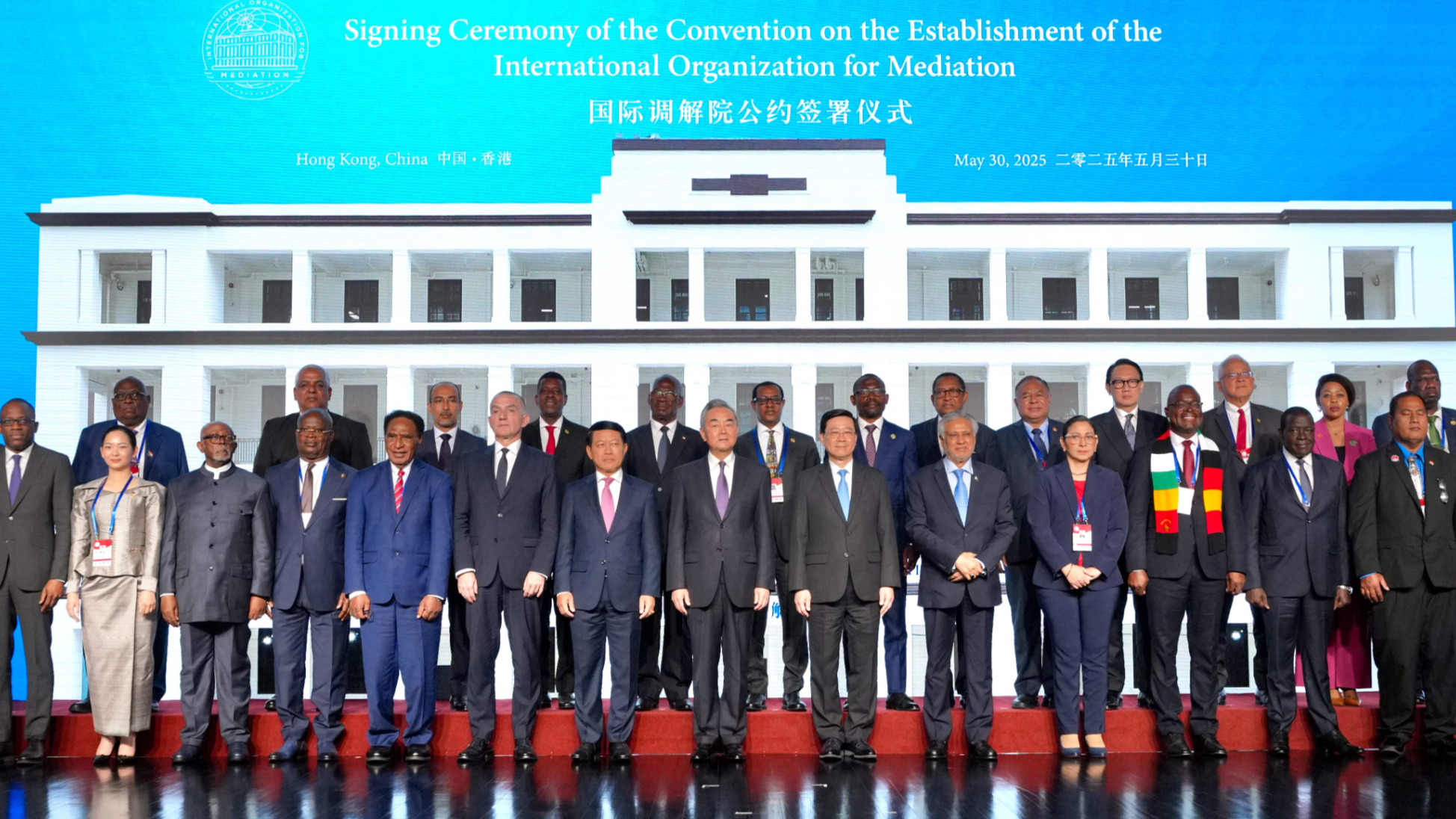
China has long maintained that differences should be handled in a spirit of mutual understanding and accommodation. Countries should build consensus through dialogue and consultation, promote development through win-win cooperation, and solve problems with a vision for the future. It was in this spirit that three years ago, China began working with nearly 20 like-minded countries to establish an international mediation organization for the peaceful resolution of disputes.
These efforts came to fruition on Friday with the signing of the Convention to establish the International Organization for Mediation in Hong Kong. This is a milestone innovation, as it marks the founding of the world’s first intergovernmental legal organization dedicated to resolving international disputes through mediation.
READ MORE: New mediation body to offer win-win solutions
Many problems have emerged in the existing international dispute settlement mechanisms, including serious double standards and low efficiency. Compared with the adversarialism of litigation and arbitration that are based on the Western legal practice, mediation has the advantages of being more culturally inclusive, flexible, economical, convenient and easy to implement.
The practical value of mediation has been demonstrated by China, which brokered a reconciliation between Saudi Arabia and Iran in 2023, and it is one of the important dispute resolution methods stipulated in the Charter of the United Nations.
With the need for such a global governance institution becoming increasingly evident, China and like-minded countries have worked together to establish the International Organization for Mediation.
It should be pointed out that the new institution has not been established to replace or challenge existing international dispute settlement mechanisms, but rather as a useful complement, providing a new platform for the settlement of differences.
ALSO READ: Explainer: What is the IOMed?
As Chinese Foreign Minister Wang Yi said in his speech at the signing ceremony, at which the representatives of 32 countries signed the Convention to become founding members of the International Organization for Mediation, it will fill the gap in international mediation mechanisms and provide an important public good of the rule of law to improve global governance by mediating in disputes between states, between states and investors in other countries, and international commercial disputes at the will of all parties.
Noting that this year marks the 80th anniversary of victory in the World Anti-Fascist War and the 80th anniversary of the founding of the United Nations, Wang highlighted the fact that the preamble to the Charter of the United Nations begins with a clear emphasis on the need for all states to live together in harmony. Yet that is still a challenge today.
President Xi Jinping has repeatedly observed that differences between countries are normal, but they should be properly resolved through dialogue and consultation — and to this end he put forward the Global Development Initiative, the Global Security Initiative and the Global Civilization Initiative as practical blueprints for building trust and understanding. The founding of the International Organization for Mediation will help move beyond the zero-sum mentality that prevails at present, promote the amicable settlement of international disputes, and help build more harmonious international relations.
READ MORE: Experts: IOMed institutionalizes mediation, complements existing rules
China looks forward to the ratification of the Convention by all signatories as soon as possible and welcomes the active accession of more countries.
As Wang said, the founding of the International Organization for Mediation is a seedling that has been planted by the signatories to the Convention, and to truly grow and prosper, it needs the international community’s support.


